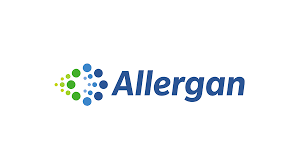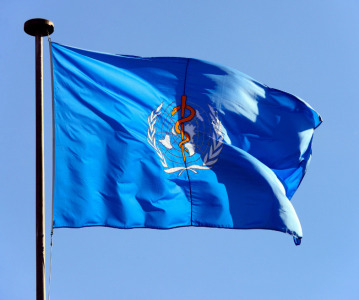FDA approves Allergan's Rhofade cream, 1% for persistent facial erythema

Once-daily treatment reduces persistent facial erythema associated with rosacea through 12 hours.
Allergan has announced the FDA approval of Rhofade cream for the topical treatment of persistent facial erythema (redness) associated with rosacea in adults. Approval was based on two clinical studies that evaluated the primary efficacy endpoint on day 29.
"The FDA approval of Rhofade exemplifies Allergan's commitment to continuing to address unmet patient needs through innovation in medical dermatology," said David Nicholson, Chief R&D Officer of Allergan. "We know persistent facial erythema associated with rosacea is a challenge for patients and physicians and having options can help in treating the disease. Rhofade is the first and only alpha1A adrenoceptor agonist approved for persistent facial erythema associated with rosacea in adults. The FDA approval of Rhofade represents a new prescription treatment that can effectively help physicians and their patients manage this condition."
The National Rosacea Society (NRS) estimates that approximately 16 million Americans are affected by rosacea. Persistent facial redness is cited as the most common sign of rosacea, and may resemble a flushing or sunburn that does not go away. Typical triggers include sun exposure, stress, weather, food, exercise and/or products. In an NRS survey, 65% of rosacea patients surveyed said their symptoms first appeared between 30-60 years of age.
"Historically, there haven't been many options available to help physicians address persistent facial erythema and often we ended up just helping our patients identify and manage triggers, which can lead to frustration for both the doctor and patient," said Dr Robert Weiss, Clinical Trial Investigator and Director of Maryland Laser, Skin & Vein Institute. "With the approval of Rhofade, doctors will now be able to provide their patients with an effective once-daily treatment option to help manage this condition."
In two clinical trials, a once-daily application of Rhofade was proven to reduce persistent facial erythema associated with rosacea through 12 hours. The primary efficacy endpoint was at day 29 and defined as the proportion of patients with at least a 2-grade reduction in erythema (improvement) from baseline (pre-dose on day 1) on both the clinician erythema assessment (CEA) and subject self-assessment (SSA) (composite success) measured at hours 3, 6, 9 and 12 versus vehicle. CEA and SSA also measured at Days 1 and 15 at hours 3, 6, 9 and 12.
The clinical trials were identical, multicentered, randomized, double-blind, parallel-group, and vehicle-controlled in moderate or severe patients, 18 years or older.
Rhofade will be available for commercial supply starting May 2017 in the US.
Related News
-
News Pharmaceutical industry supports COP28 health stance in joint statement
As COP28 takes place over this week in Dubai, UAE, several bodies in the pharmaceutical and health industries have come together to announce support of key movements in sustainability in the sector, and to recognise sustainability as a health issue.&nb... -
News Biden backs Cold-War measures to shore-up medical supply chains
In a recent strategy to combat rising inflation and the cost of living crisis, President Joe Biden has invoked a Cold War-era act to increase investment in a selection of medicines and supplies. -
News CPHI Podcast Series: What does the changing US Pharma market mean for industry and patients alike?
In this week's episode of the CPHI Podcast Series Lucy Chard, Digital Editor for CPHI Online is joined by James Manser to discuss the political and market changes in the US pharma field. -
News Which 10 drugs are open to price negotiation with Medicare in the USA?
The Centres for Medicare & Medicaid Services, under the Biden administration in the USA, has released a list of the 10 drugs that will be open to price negotiations as part of the new legislation under the Inflation Reduction Act (IRA). -
News 10 Major Drug Approvals So Far in 2023
Last year, 37 novel drugs were approved by the FDA, this was a high number for such a category, and covered many fields including oncology, demonstrating how promising further research is, and how it is only continuing to build. To date, there are alre... -
News Novartis agrees for copies to be made of cancer drug to reach poorer countries
Novartis signs agreement with MPP to have generics of it's leukemia drug made so that it can be more easily distributed to the world's poorer countries. -
News CPHI Podcast Series: outsourcing and manufacturing trends
Listen to the CPHI Podcast Series this June to hear Gil Roth of the PBOA speak with Digital Editor Lucy Chard about the biggest trends and topics to watch in pharma outsourcing and manufacturing at the minute. -
News New WHO health emergency guidelines expect full transparency from Big Pharma
The WHO are proposing a new set of pandemic guidelines to set out how future global health crises should be handled.
Position your company at the heart of the global Pharma industry with a CPHI Online membership
-
Your products and solutions visible to thousands of visitors within the largest Pharma marketplace
-
Generate high-quality, engaged leads for your business, all year round
-
Promote your business as the industry’s thought-leader by hosting your reports, brochures and videos within your profile
-
Your company’s profile boosted at all participating CPHI events
-
An easy-to-use platform with a detailed dashboard showing your leads and performance







